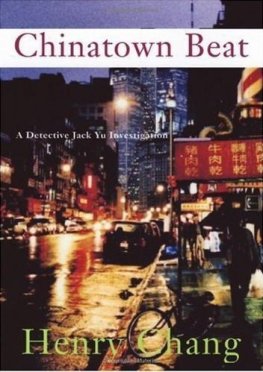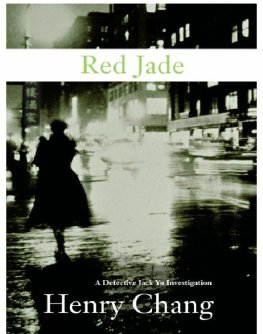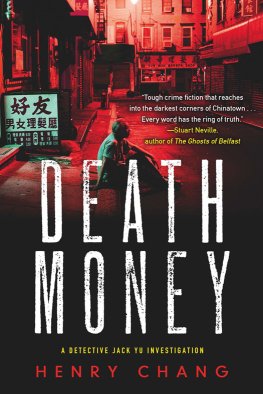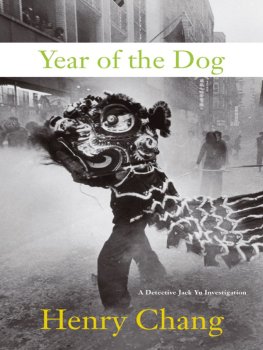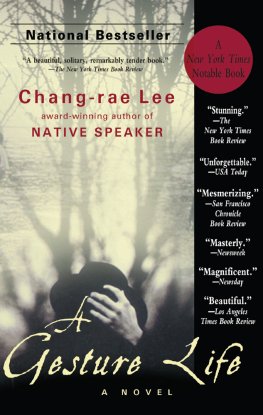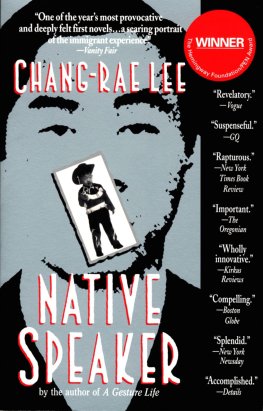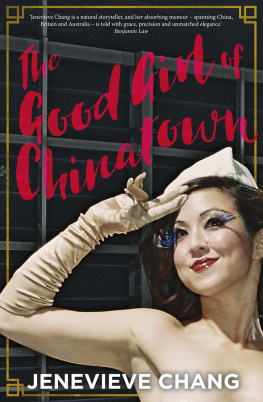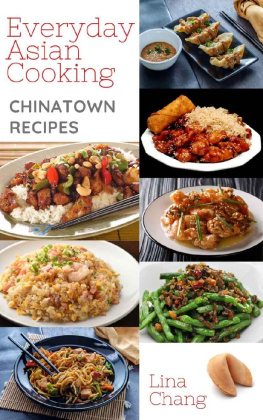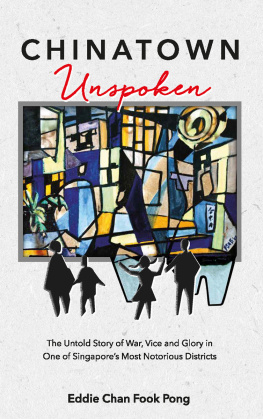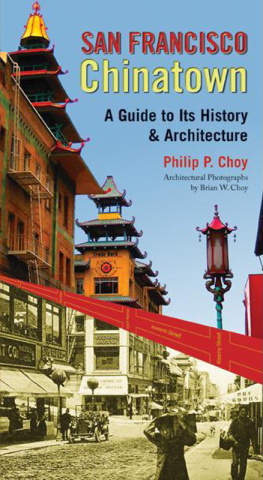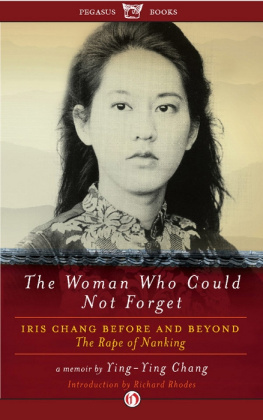Henry Chang - Chinatown Beat
Here you can read online Henry Chang - Chinatown Beat full text of the book (entire story) in english for free. Download pdf and epub, get meaning, cover and reviews about this ebook. genre: Detective and thriller. Description of the work, (preface) as well as reviews are available. Best literature library LitArk.com created for fans of good reading and offers a wide selection of genres:
Romance novel
Science fiction
Adventure
Detective
Science
History
Home and family
Prose
Art
Politics
Computer
Non-fiction
Religion
Business
Children
Humor
Choose a favorite category and find really read worthwhile books. Enjoy immersion in the world of imagination, feel the emotions of the characters or learn something new for yourself, make an fascinating discovery.
- Book:Chinatown Beat
- Author:
- Genre:
- Rating:3 / 5
- Favourites:Add to favourites
- Your mark:
- 60
- 1
- 2
- 3
- 4
- 5
Chinatown Beat: summary, description and annotation
We offer to read an annotation, description, summary or preface (depends on what the author of the book "Chinatown Beat" wrote himself). If you haven't found the necessary information about the book — write in the comments, we will try to find it.
Henry Chang: author's other books
Who wrote Chinatown Beat? Find out the surname, the name of the author of the book and a list of all author's works by series.
Chinatown Beat — read online for free the complete book (whole text) full work
Below is the text of the book, divided by pages. System saving the place of the last page read, allows you to conveniently read the book "Chinatown Beat" online for free, without having to search again every time where you left off. Put a bookmark, and you can go to the page where you finished reading at any time.
Font size:
Interval:
Bookmark:
Henry Chang
Chinatown Beat
Nightrider
Johnny Wong pulled the black Lincoln over, onto the sidewalk halfway down the narrow street, territory of the Hip Chings. It was nine in the evening and before he could kill the engine they appeared, the stocky mustached man they called Uncle Four and the fragile Hong Kong lady, Mona. They were in the car before he could get out and open the door, the man motioning to him with a jerk of his hand.
"Lotus Blossom Club," said Uncle Four. The lady was silent as Johnny drove off wondering about her, passing through the nine neon-lit blocks in the rainy Chinatown night.
Uncle Four never said another word until they arrived.
"Come back eleven," he said. Mona followed him out, then down into the karaoke nightclub, never glancing back. When they were out of view, Johnny slammed the steering wheel hard, pausing for a long moment before urging the car away.
"Dew nei louh mou hei, "he hissed, motherfucker, and soon enough the chopping sound of windshield wipers brought him around to East Broadway, the lower part of town where the radio-car boys gathered and gossiped away the dead ends of their evenings.
They ate, slept, breathed Chinese, these expatriates, and they watched Chinese movies, shopped Chinese supermarkets, got laid in Chinese rub joints.
The laundromat attendant, the bank cashier, the locksmith, the mailman: all spoke Chinese.
The vocabulary of the car boys was limited; every other Chinese phrase rang out motherfucker this, motherfucker that. Whenever they did speak English it was sprinkled in between Chinese sentences, words that sang out: focking got dem, and a lot of cok sooka, molla focka.
Johnny felt superior but comfortable among them. He enjoyed their camaraderie, the spirit they generously shared with him. But he wasn't like them, and he knew it. They drove their limos because it was an easy enough life to fall into, and they found satisfaction in being their own bosses.
The Taxi and Limousine Commission dealt out franchises for seven thousand dollars, which included the radio hookup and the gypsy plates. Another five hundred dollars for the diamond sticker that allowed them to make pickups from the street. Lease or buy a black sedan. His used Continental had cost ten thousand. A 1990 model. It had eighty thousand miles when he bought it off Jung gor, brother Jung, who got cancer and went to San Francisco to die.
Johnny had labored three hard years for Big Wong's Construction and Design. Two years as kup yee, the steam presser, in the Rich Fortune sweatshop. Slaving. Saving cash.
All of it went into the car.
The other night drivers had refused to wait tables for long hours, sucking up to the white tourists. They disdained the misery of the market workers and the hard labor of the construction cowboy gangs, choosing instead to gamble and borrow, cheat and steal from their extended families. Their destinations were the racetracks and the gaming parlors, karaoke clubs and airport bars, nightclubs and whorehouses, glamorous places and secret hideaways where they chauffeured their shady clients of the night.
They were satisfied with themselves, and scoffed at Johnny's few foreign phrases. What the fock did they need the gwailo-white devil-English for?
The oldest driver was Gee Mun, sixty-three, a retired steam presser from the Rich Fortune. When he couldn't survive on Social Security alone, he became the off-driver wheneverJohnny slept, which was mostly during the day. For the use of the car, Gee Mun gave Johnny twenty-five percent of his weekly tally. And he kept the Continental's tank full.
Including the pickups from the street and tips, Johnny was clearing eight hundred a week. Forty thousand a year. Not bad for an ex-Hong Kong waiter with no book smarts, and only fragments of English.
America had taught him to be cunning. With a little luck he figured to double the forty thousand in a year. The tips were always better at night, bigger chaan jee-cash-from men who gambled with their lives. But Johnny looked beyond jockeying the radio car. He believed he was going to make his money and get out, sell the car, invest his cash in other directions. Find a partner, someone with money and connections. A takeout counter in Brooklyn, go in with the Lucky Valley's third chef. The thirtyminute photo shop idea. The hardware store, the coin laundromat, the produce market. The fish market with the Chow brothers. A bakery franchise. Dreams bantered back and forth among the drivers waiting for calls from the night, in their dark cars.
"Wong Jai," they called Johnny, Kid Wong. "What's with this piece of pussy you keep talking about?" they asked. Johnny never elaborated, but he couldn't keep Mona out of his mind. The others knew this and teased him, knowing he'd only clam up, change the subject.
"Ho sai li," Gee Mun said, dangerous. The drivers knew why. Women were sly, manipulative creatures by nature, instinctively so because of the weakness of their bodies.
Almost four months now he'd been driving her, since the end of the fierce NewYork City winter, a petite woman with deep black hair cut in a short bob. Always wore black. High heels. She had oval eyes with a translucent brown luster, set in a face of porcelain skin that threatened to shatter in the cold the only time he ever saw her in daylight. Her lips, cherry-blossom red.
It was a private contract. He kept her off the radio so none of the other drivers or dispatchers would know about her. But since he filled the bulk of his prime workday with sporadic pickups, leasing his daylight downtime to Gee Mun, the other drivers all knew he was doing side jobs. One of them had spotted Mona exit- ingJohnny's Continental, and word had gotten around, though nobody was sure who she was. Johnny became more careful about the routes he used.
"Secrecy," she'd said, was the key. He'd be required to keep her identity secret, to not talk about her. Johnny had agreed. "Confidential," she'd said, with an edge to her Hong Kong Cantonese.
The old man was short, maybe five-five, and stocky. He had a trim mustache, was balding on top and wore large jade rings on his meaty fingers. Everybody knew he was a big shot of the Hip Chings.
Now she was a regular four nights a week, three or four stops a night. The old man always gave the orders, but it was Mona who paid Johnny, cash. Three hundred a week. They hardly spoke the first two months, and never in front of Uncle Four.
Gradually she opened up to him, and now he wished she hadn't. The money and tips were good, but he didn't like to get involved with the customers, and what she'd confided in him was like a throbbing in his brain, a dull and bothersome headache.
The month before, after they'd begun to speak regularly, she gave him a fearful look and quietly said some nasty things about Uncle Four. He wished he hadn't heard it, wished he could do something about it, but knew it was impossible.
She said Uncle Four beat her and raped her, that he did this regularly. What the fock, he thought, she's his mistress. What the fock does she expect? Why stay with him then?
When he asked her why she didn't simply leave, she just cried. They didn't speak for a week after that, but he knew that she had given him part of her pain, and he was suffering along with her. She didn't have to speak. He saw it in her eyes every time they stole glances at each other, every time she touched his hand, every time she walked away behind the Mustache, never glancing back.
"Focken bitches," the other drivers said, "play you for a sooka."
"Don't let them use you," they warned.
"Money talks, bullshit walks. That's what those hei cants care about."
Johnny was trying to control the fever slowly warming in his brain. He had two hours before he had to pick her up, until he had to face her eyes asking a hundred questions. He glanced at his wristwatch, tossed his bet money into the pool with the other drivers'. Two hours. He invested forty dollars atYonkers Raceway. Snappin Dragon in the fourth. Samurai Warrior in the eleventh. What the hell, he thought, and closed his eyes.
Font size:
Interval:
Bookmark:
Similar books «Chinatown Beat»
Look at similar books to Chinatown Beat. We have selected literature similar in name and meaning in the hope of providing readers with more options to find new, interesting, not yet read works.
Discussion, reviews of the book Chinatown Beat and just readers' own opinions. Leave your comments, write what you think about the work, its meaning or the main characters. Specify what exactly you liked and what you didn't like, and why you think so.

